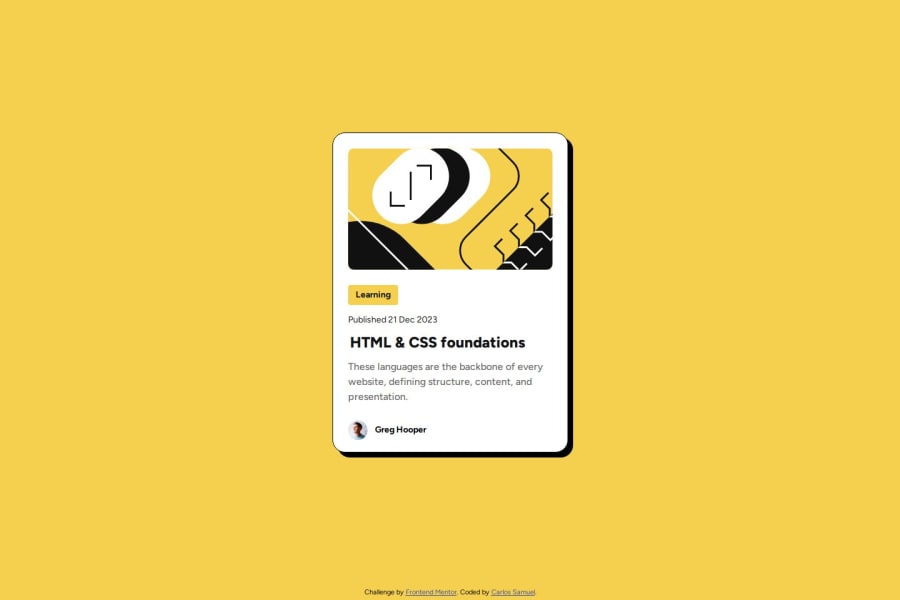
Design comparison
SolutionDesign
Solution retrospective
What are you most proud of, and what would you do differently next time?
I'm proud that i did the challenge very fast, except by the abstract image.
I tried to put the SVG directly in the code, instead of putting the archive inside a .
I did:
Instead of:
What challenges did you encounter, and how did you overcome them?
The biggest challenge was actually trying to round the edges of an SVG vector instead of just using my brain and placing it in the
What specific areas of your project would you like help with?Any help is welcomed here!
Community feedback
Please log in to post a comment
Log in with GitHubJoin our Discord community
Join thousands of Frontend Mentor community members taking the challenges, sharing resources, helping each other, and chatting about all things front-end!
Join our Discord
